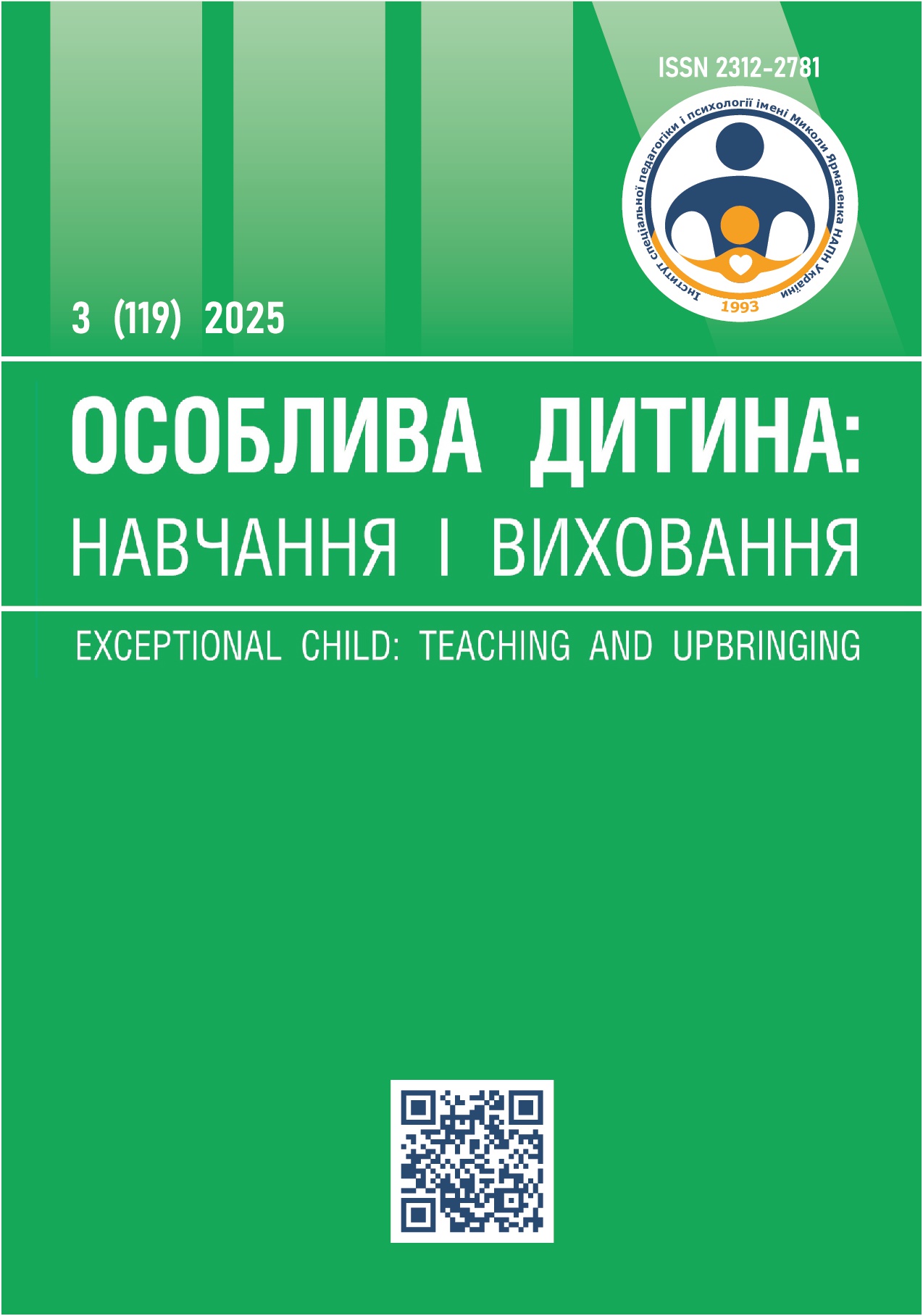ANXIETY AS A LEADING FACTOR IN THE FORMATION OF SELECTIVE MUTISM IN CHILDREN
Abstract
The phenomenon of selective mutism consists in the fact that a child, possessing normative speech abilities for his age, turns out to be unable to speak only in certain social situations.
The purpose of the study is to analyze the factors and conditions of the occurrence of selective mutism in children in order to increase the effectiveness of providing them with psychological, psychiatric, correctional, and pedagogical assistance and preventive measures. The research was carried out using methods of theoretical analysis of relevant psychological, pedagogical and psychiatric literature, as well as generalization and systematization of the results of published studies of the factors in the formation of selective mutism in childhood.
Results of the study. The etiology of selective mutism is multifactorial and has not been fully studied. The phenomenon of this childhood disorder is caused by a whole complex of interacting factors, such as: genetic heredity, personality traits and neurological development, as well as the surrounding socio-psychological climate. However, our analysis of the factors and conditions for the emergence of selective mutism showed that the leading factor in the formation of selective mutism in children is anxiety as a stable functional formation at the corresponding stages of children's development (base), which under the influence of an unfavorable environment (the trigger of the formation mechanism is deviated in development) leads to the emergence of this phenomenon. Therefore, in our opinion, the most effective psychological-psychiatric, correctional-pedagogical and medicinal methods of overcoming and preventing selective mutism in children are those that are primarily aimed at eliminating their anxiety. Since the development of anxiety in such children is largely caused by some abnormal styles of relationships and upbringing in families or in preschool educational and school institutions, the corrective activities of specialists aimed at overcoming the phenomenon of selective mutism and, especially, its prevention, must be carried out with the active participation of parents, educators and teachers armed with the necessary knowledge.
References
Особлива дитина: навчання і виховання. №3(119). 2025. с. 254-272


